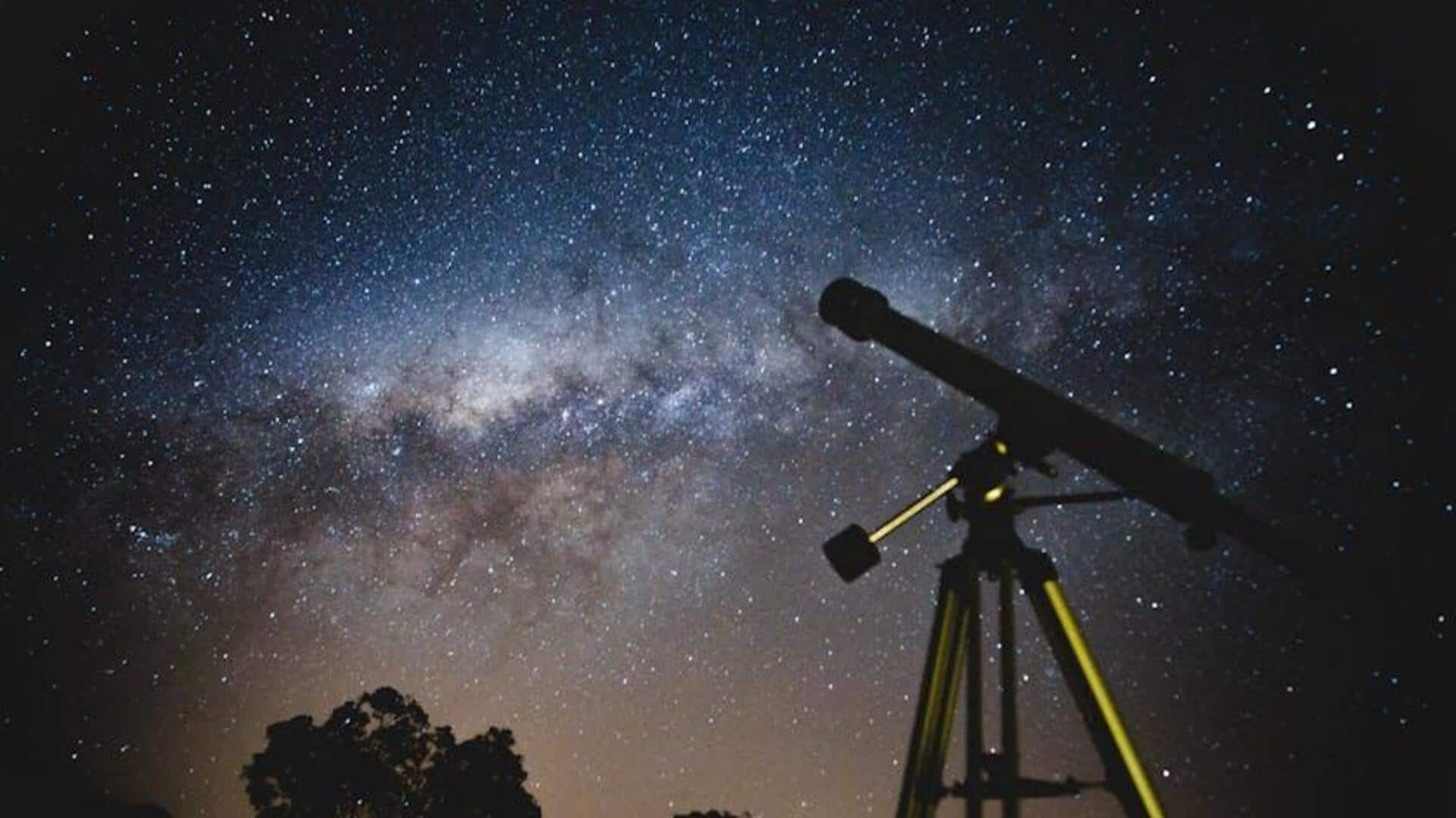
Pulsar hunt: A new stargazing adventure you should try
What's the story
The mysteries of the universe have always fascinated people.
Today, technology allows backyard astronomers to track deep space signals.
Pulsar hunting nights are now the new way to stargaze.
These evenings let participants detect signals from pulsars, which are fast-spinning neutron stars.
It's a fun activity that also helps with scientific research!
Equipment
Choosing the right equipment
For novices, it's best to begin with a simple radio telescope kit. These kits are easy to assemble and capable of detecting a broad spectrum of frequencies.
And while professional-grade setups can cost $5,000 or more, beginner-friendly kits can be purchased for as little as $200.
Just make sure your kit comes with a software-defined radio (SDR) - this will vastly improve your ability to receive and analyze pulsar signals.
Signals
Understanding pulsar signals
Pulsars are fascinating objects that emit regular pulses of radio waves, detectable by radio telescopes.
Each pulsar has a unique pulsation period ranging from milliseconds to seconds, serving as cosmic lighthouses.
By carefully tracking these signals, you can discover the pulsar's characteristics, including its rotation speed and magnetic field strength.
This activity requires patience and precision, but it provides a rewarding glimpse into the dynamic world of these celestial objects.
Community
Joining online communities
Joining online communities of amateur radio astronomers can make tracking pulsars a lot more fun and less frustrating.
Places like Reddit and dedicated forums have huge communities of enthusiasts sharing tips, successes, and helping each other troubleshoot problems.
People in these groups often host virtual star parties, where everyone tunes in at the same time, sometimes even collaborating on international research projects.
Contribution
Contributing to scientific research
Amateur astronomers play a vital role in scientific discovery, capturing data that might be overlooked by professional observatories.
By uploading their discoveries to university or space agency databases, they contribute to a global effort that fuels research in astrophysics.
This teamwork has resulted in groundbreaking discoveries and remains essential for the continued exploration of deep space mysteries.
Tips
Practical tips for successful observations
To increase your odds of spotting pulsar signals, observe on clear nights away from the city lights, which cause a lot of radio interference.
Learn to use software tools that filter out the noise, helping you identify real cosmic signals.
Keep practicing! Patience is key in this rewarding hobby. It helps you recognize the faint celestial whispers among the earthly shouts.